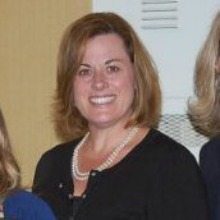
Nancy Rowland is the STEM Coordinator at Fort Belvoir Elementary School in Fairfax County. Rowland, along with her colleagues and Fort Belvoir, were recognized this week by the Virginia Technology and Engineering Education Association (VTEEA) as VTEEA Elementary Program of the Year.
Rowland has worked for the Fairfax County Public School System for the past seven years. She recently spoke with WashingtonExec and talked about Fort Belvoir’s heavy STEM involvement, the benefits of STEM for elementary school kids, what she most likes about her job and more.
WashingtonExec: About your current role with STEM, what exactly are you doing?
Nancy Rowland: I am the STEM Program Coordinator at Fort Belvoir Elementary School. We received a $1.5 million grant three years ago for STEM Education. We have hired a STEM Resource Teacher, created two STEM Labs, provided professional development in STEM hands-on inquiry-based & research-based STEM curriculum to the staff of 100 teachers at Fort Belvoir. All 1,200 students (98 percent of whom are military dependents) at Fort Belvoir ES participate in STEM as a resource class. Additionally, teachers provide STEM hands-on lessons in the classroom. Teachers can also use the second STEM Lab during a designated time to provide STEM lessons.
Our program provides after-school and summer extending learning STEM opportunities to students. Each school year, we have 600 students from 1st grade to 6th grade participate in the after-school program. We provide three six-week after-school sessions for students and during the summer we offer three two-week sessions for three hours per day. Last year we expanded our program to include all six elementary schools in the Mount Vernon High School Pyramid.
WashingtonExec: What is ‘The Workforce Of Tomorrow Are Your Kids Today. Why STEM is Critical to their Success!”?
Nancy Rowland: Our school not only provides STEM lessons but also provides real world STEM experiences. We have collaborated with professionals from local STEM related fields to work with our students. The professionals we work with are from Clark Construction, Lockheed Martin, Program Manager Soldiers Sensors and Lasers (PMSSL) – Night Vision Goggles, and the Army Corp of Engineers. Additionally, we have provided students with the resources to raise vegetable gardens and butterfly gardens as well as a recycling center.
Students need to be aware of the incredible opportunities that are available to them in STEM careers. It is our hope that students are made aware of these opportunities and eventually pursue them in college and beyond.
_____________________________________________________________________________________
“STEM lessons when integrated with language arts, math, science and social studies help to increase critical thinking and promote learning”
_____________________________________________________________________________________
WashingtonExec: Do you have a long-term plan? What comes next?
Nancy Rowland: We have served as the model for summer extended STEM learning for Fairfax County Public Schools (FCPS) and we hope to continue to be a STEM role model for other elementary schools. We are continuing to look for additional funding in order to keep the level of programming as high as it currently is today.
WashingtonExec: What do you like most about your work?
Nancy Rowland: This is probably the most gratifying position I have ever held. I have had the ability to help shape and grow a program from the very beginning. I enjoy collaborating with my co-worker Kara Fahy, STEM Resource teacher at Fort Belvoir and with the other teachers at Fort Belvoir. We have tremendous buy-in from the teachers and staff here at Fort Belvoir which is the main reason for our great success. Additionally, I enjoy bringing the programming to the parents and families here at Fort Belvoir. The families love to get involved and are so appreciative of these programs.
In 2013, Fort Belvoir was honored with the “program of the year award” for Elementary School Technology Programs from the Virginia Technology and Engineering Educators Association. Additionally, we have received the International Technology and Engineering Educators Association (ITEEA) “program of excellence award”.
WashingtonExec: If you weren’t working on this, what would you be doing?
Nancy Rowland: I have always been an educator, so I am sure I would have some role in education.
WashingtonExec: What, if any experiences have influenced your thought processes? Positive/negative?
Nancy Rowland: My experiences throughout my career have been eclectic. I feel like I have learned something from each position I have held and from the people I have worked with. I became involved in STEM sort of by accident. Our school was offered an opportunity to write a grant. A team of staff members at Fort Belvoir, including myself, worked on the grant application. We had a choice between language arts and STEM. At that time, three years ago, STEM was different and not commonly found in an elementary school when we decided to pursue a STEM grant. I was the grant coordinator on another grant and thanks to then Principal, Mrs. Jane Wilson, I was offered the position of STEM Grant Coordinator. In many ways I feel like I found the perfect position. Ironically, my father was an engineer and worked on Apollo 11 and then in higher education as the Dean of Engineering and Technology; somehow I know he is smiling.
WashingtonExec: What would you like readers to know?
Nancy Rowland: I have seen students who are not performing particularly well on “standardized tests,” but performing extremely well when working on hands-on inquiry-based lessons. It is amazing to watch a student who typically is not successful in school become successful. They gain confidence and enjoy learning. STEM lessons when integrated with language arts, math, science and social studies help to increase critical thinking and promote learning. Teachers need to be given the opportunity to explore this type of teaching in order to become comfortable with it.


